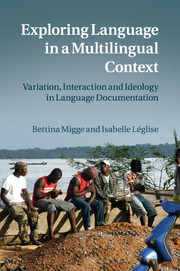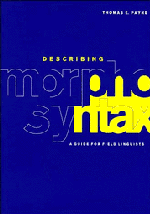Linguistic Fieldwork
A handy beginner's guide, this textbook introduces the various stages of linguistic fieldwork, from the preparation of the work to the presentation of the results. Drawing on over forty years of fieldwork experience between them, in over two dozen languages, the authors pack the book with examples and anecdotes from their experiences and include practical exercises for students to test what they have learned. Independent of any particular perspective, the methods can be applied to a wide range of fieldwork settings, for projects with very different theoretical backgrounds and without the need to travel too far. The book covers 'traditional fieldwork' such as language description and documentation, as well as less typical methods, including language contact and quantitative studies with experiments or questionnaires.
- Textboxes throughout provide lively anecdotes from the authors' and others' fieldwork experiences
- Includes useful exercises and ways of trying out fieldwork methods wherever the student happens to be based
- An accompanying website includes answer keys to the exercises and a sound recording for students to analyse real-life data
Reviews & endorsements
'… a perfect students' guide through the intricate landscape of planning and conducting language research and documentation with the aid of native speakers.' Thomas Stolz, Chair of Linguistics, University of Bremen
'Because of the contemporary emphasis on the description and documentation of endangered languages, the publication of this extremely useful guide to field research by Sakel and Everett, both experienced fieldworkers, is very timely.' Robert D. Van Valin, Jr, Henrich Heine University and the State University of New York, Buffalo
Product details
February 2012Paperback
9780521545983
192 pages
247 × 174 mm
0.38kg
5 tables
Temporarily unavailable - available from TBC
Table of Contents
- 1. Introduction: what is linguistic fieldwork?
- 2. Fieldwork projects: two examples
- 3. The languages
- 4. The people
- 5. Fieldwork preparation
- 6. Fieldwork methods
- 7. The outcomes.







